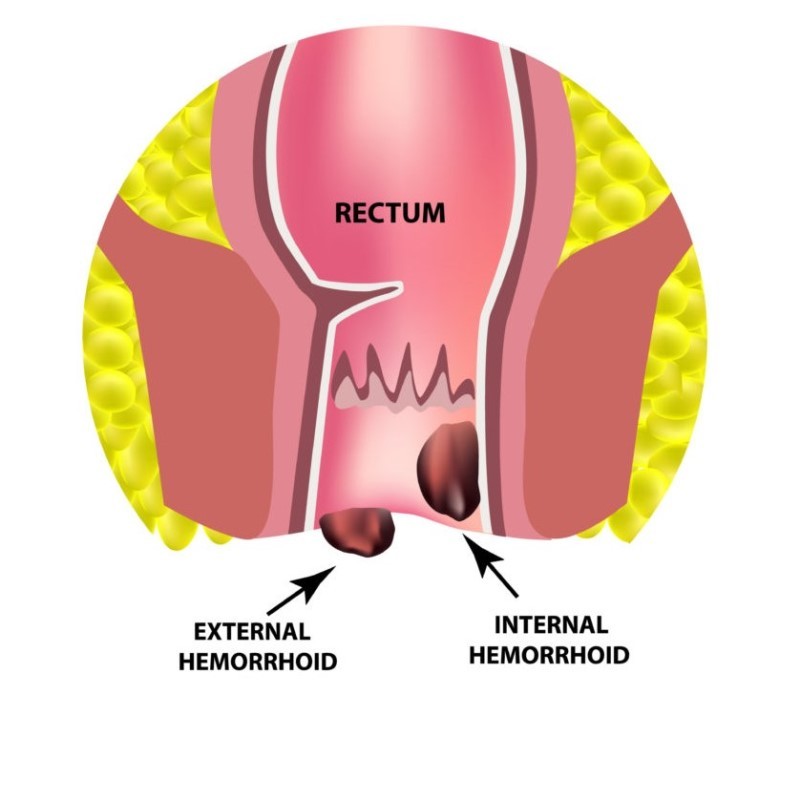Dr.Balaji Ayurevda Specialities
1.Panchakarma Treatment
2.Rasayana Treatment
3.Vajeekarana Treatment
4.Marma Treatment
5.Nadi Pareeksha Treatment
6.Kshara Sutra Treatment
1.Panchakarma Treatment
Panchakarma is a type of Ayurvedic treatment that involves a series of therapeutic procedures to cleanse and detoxify the body. It is believed to help restore balance to the doshas, or energies that govern physical and mental processes in the body according to Ayurveda.
The five main components of Panchakarma treatment are:
1.Vamana: This involves inducing vomiting to eliminate toxins from the upper digestive tract.
2.Virechana: This involves inducing purging to eliminate toxins from the small intestine.
3.Basti: This involves the administration of medicated oils or decoctions through the rectum to cleanse and nourish the lower digestive tract.
4.Nasya: This involves the administration of medicated oils or herbs through the nostrils to cleanse and nourish the head and neck region.
5.Raktamokshana: This involves the removal of impure blood through techniques such as leech therapy or bloodletting.
Panchakarma treatment is typically administered by trained Ayurvedic practitioners in a specialized clinic or center. It may be recommended for a variety of conditions, including chronic illness, stress, and fatigue. It is important to consult with a qualified Ayurvedic practitioner before starting any Panchakarma treatment.
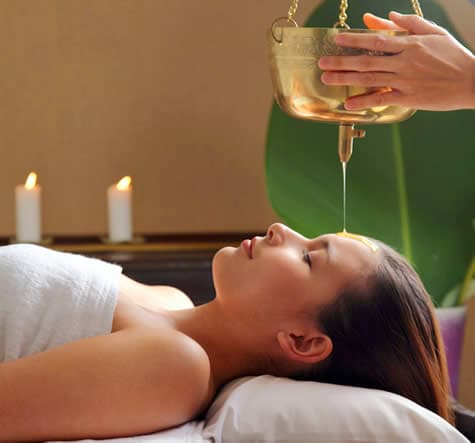
2.Rasayana Treatment
Rasayana is a term in Ayurveda that refers to a type of therapy designed to promote health, longevity, and overall well-being. It is believed to strengthen the immune system, enhance physical and mental vitality, and improve the quality of life.
There are several different types of Rasayana treatments in Ayurveda, including:
Herbal Rasayanas: These are herbal formulations that are taken orally to nourish and rejuvenate the body. They may be prepared in the form of powders, tablets, or decoctions.
Panchakarma Rasayanas: These are therapeutic procedures that are part of the Panchakarma treatment and are designed to cleanse and rejuvenate the body.
Sattvic Rasayanas: These are lifestyle practices that are believed to nourish and rejuvenate the body and mind. They may include practices such as yoga, meditation, and a sattvic diet, which is a diet that emphasizes pure, nourishing foods.
Rasayana treatment is typically administered by trained Ayurvedic practitioners in a specialized clinic or center. It may be recommended for a variety of conditions, including chronic illness, stress, and fatigue. It is important to consult with a qualified Ayurvedic practitioner before starting any Rasayana treatment.
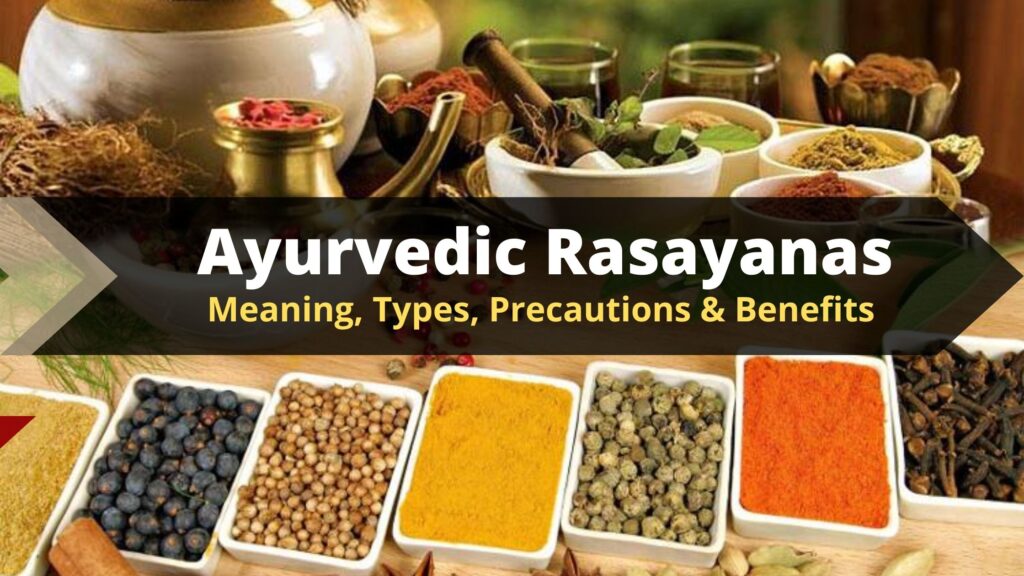
3.Vajeekarana Treatment
Vajeekarana is a term in Ayurveda that refers to a type of therapy designed to improve male reproductive health and enhance fertility. It is believed to strengthen the reproductive system, improve sexual performance, and increase the chances of conception.
There are several different types of Vajeekarana treatments in Ayurveda, including:
Herbal Vajeekarana: These are herbal formulations that are taken orally to nourish and strengthen the reproductive system. They may be prepared in the form of powders, tablets, or decoctions.
Panchakarma Vajeekarana: These are therapeutic procedures that are part of the Panchakarma treatment and are designed to cleanse and rejuvenate the reproductive system.
Sattvic Vajeekarana: These are lifestyle practices that are believed to nourish and rejuvenate the reproductive system. They may include practices such as yoga, meditation, and a sattvic diet, which is a diet that emphasizes pure, nourishing foods.
Vajeekarana treatment is typically administered by trained Ayurvedic practitioners in a specialized clinic or center. It may be recommended for men who are experiencing fertility issues or other reproductive health concerns. It is important to consult with a qualified Ayurvedic practitioner before starting any Vajeekarana treatment.
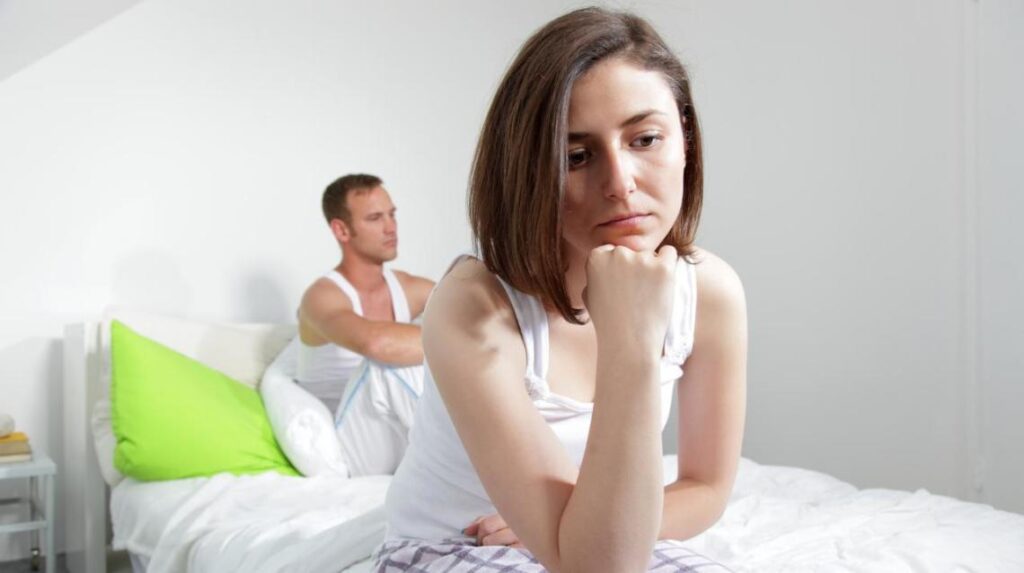
4.Marma Treatment
Marma treatment is a type of Ayurvedic therapy that involves the use of specific pressure points on the body to promote healing and balance. Marma points are similar to acupuncture points in traditional Chinese medicine and are believed to be connected to the body’s energy channels or nadis.
In Marma treatment, practitioners apply gentle pressure or massage to specific marma points on the body to stimulate the flow of energy and promote healing. Marma treatment may be used to treat a variety of physical and mental health conditions, including chronic pain, stress, and insomnia.
Marma treatment is typically administered by trained Ayurvedic practitioners in a specialized clinic or center. It is important to consult with a qualified Ayurvedic practitioner before starting any Marma treatment.
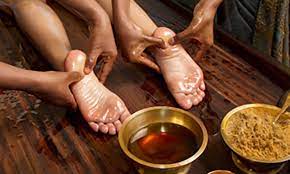
5.Nadi Pareeksha Treatment
Nadi Pareeksha is a type of Ayurvedic pulse diagnosis that is used to assess the health of an individual and identify any imbalances in the body. In Nadi Pareeksha, the practitioner examines the pulse at different points on the wrist to gather information about the functioning of various organs and systems in the body.
Nadi Pareeksha is based on the belief that the pulse is a reflection of the body’s subtle energy or prana, and that it can provide insight into an individual’s physical, emotional, and mental health. The practitioner may use this information to determine the appropriate course of treatment, which may include herbal remedies, diet and lifestyle recommendations, and other therapies.
Nadi Pareeksha is typically administered by trained Ayurvedic practitioners in a specialized clinic or center. It is important to consult with a qualified Ayurvedic practitioner before starting any Nadi Pareeksha treatment.
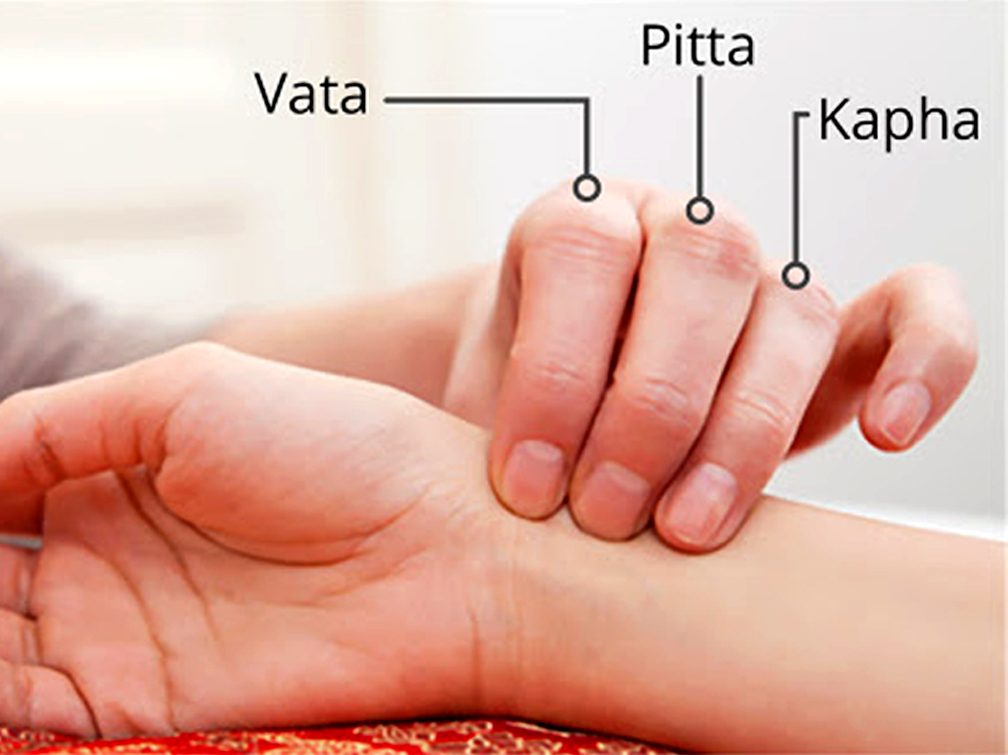
6.Kshara Sutra Treatment
Kshara Sutra treatment is a type of Ayurvedic therapy that involves the use of medicated threads to treat certain conditions, particularly those affecting the genitourinary and gastrointestinal systems. The threads are made from herbs and other natural substances and are inserted into the affected area to provide a therapeutic effect.
In Kshara Sutra treatment, the threads are inserted through a small incision and left in place for a specific period of time. The threads are believed to help stimulate the body’s natural healing processes and can be used to treat a variety of conditions, including hemorrhoids, fistulas, and non-healing wounds.
Kshara Sutra treatment is typically administered by trained Ayurvedic practitioners in a specialized clinic or center. It is important to consult with a qualified Ayurvedic practitioner before starting any Kshara Sutra treatment
